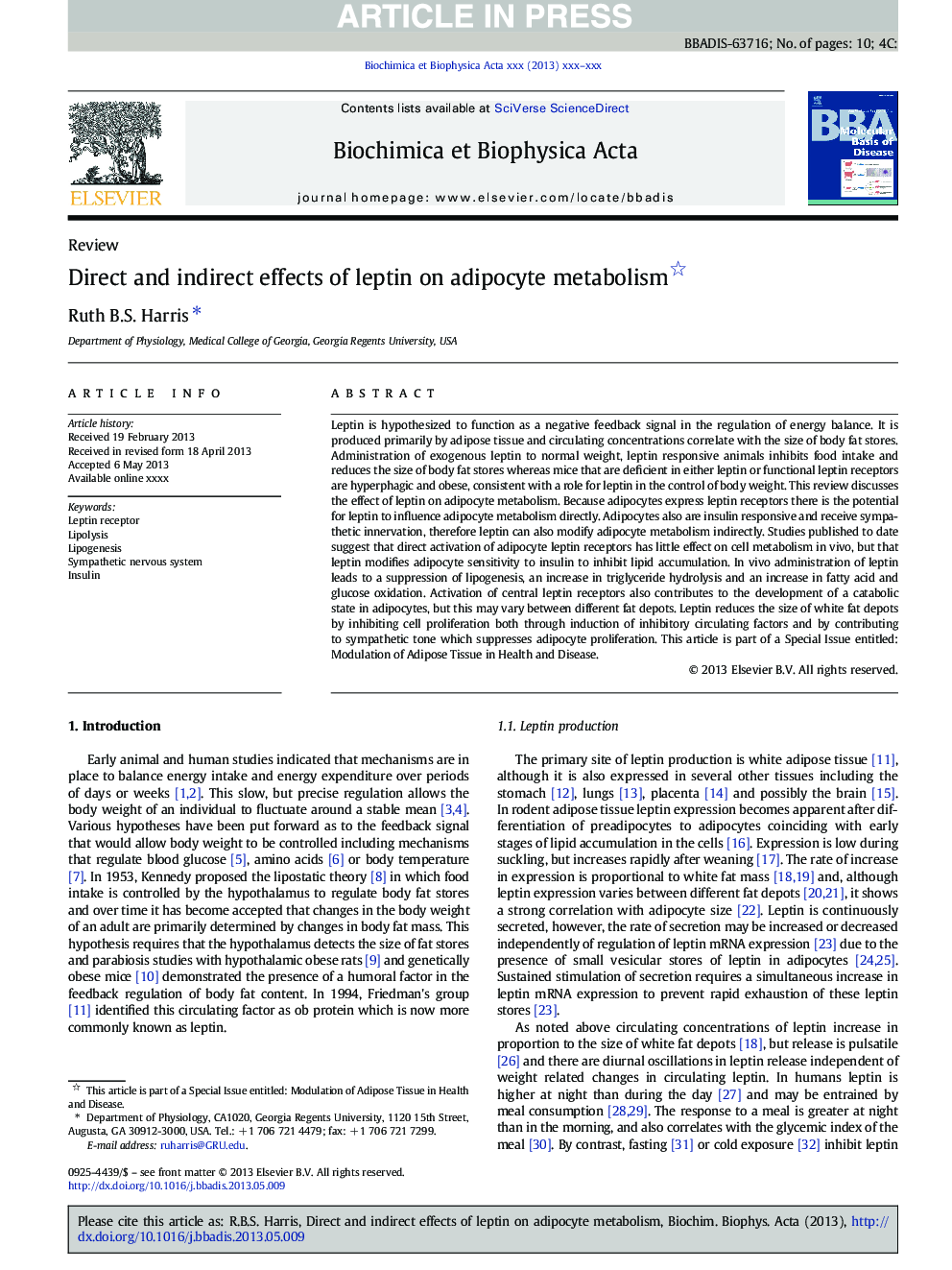| Article ID | Journal | Published Year | Pages | File Type |
|---|---|---|---|---|
| 8260426 | Biochimica et Biophysica Acta (BBA) - Molecular Basis of Disease | 2014 | 10 Pages |
Abstract
Leptin is hypothesized to function as a negative feedback signal in the regulation of energy balance. It is produced primarily by adipose tissue and circulating concentrations correlate with the size of body fat stores. Administration of exogenous leptin to normal weight, leptin responsive animals inhibits food intake and reduces the size of body fat stores whereas mice that are deficient in either leptin or functional leptin receptors are hyperphagic and obese, consistent with a role for leptin in the control of body weight. This review discusses the effect of leptin on adipocyte metabolism. Because adipocytes express leptin receptors there is the potential for leptin to influence adipocyte metabolism directly. Adipocytes also are insulin responsive and receive sympathetic innervation, therefore leptin can also modify adipocyte metabolism indirectly. Studies published to date suggest that direct activation of adipocyte leptin receptors has little effect on cell metabolism in vivo, but that leptin modifies adipocyte sensitivity to insulin to inhibit lipid accumulation. In vivo administration of leptin leads to a suppression of lipogenesis, an increase in triglyceride hydrolysis and an increase in fatty acid and glucose oxidation. Activation of central leptin receptors also contributes to the development of a catabolic state in adipocytes, but this may vary between different fat depots. Leptin reduces the size of white fat depots by inhibiting cell proliferation both through induction of inhibitory circulating factors and by contributing to sympathetic tone which suppresses adipocyte proliferation. This article is part of a Special Issue entitled: Modulation of Adipose Tissue in Health and Disease.
Related Topics
Life Sciences
Biochemistry, Genetics and Molecular Biology
Ageing
Authors
Ruth B.S. Harris,
